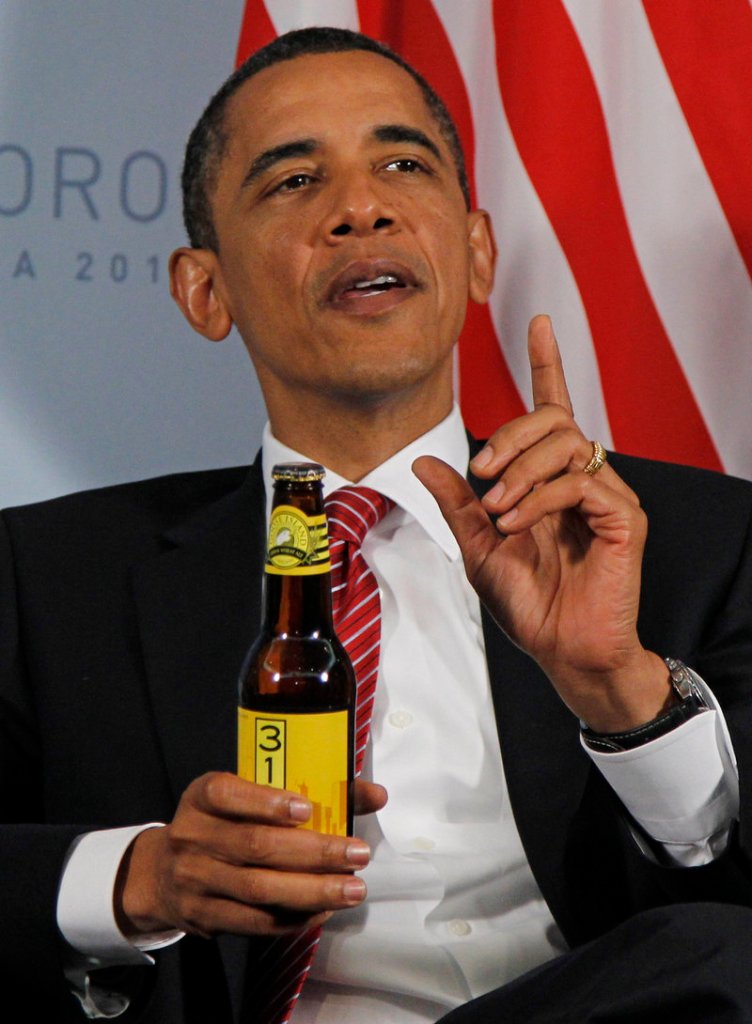CHICAGO – President Obama is close to completing his top three legislative goals, even as recession-weary Americans give him some of the lowest approval ratings of his presidency.
Obama scored his latest victory last week as congressional negotiators approved the most sweeping overhaul of U.S. financial regulations since the Great Depression, just three months after passage of landmark health care legislation. He signed into law one of the biggest economic-rescue efforts in U.S. history less than a month after entering the White House.
Still, with unemployment at 9.7 percent, the president has been unable to convert the accomplishments during his first 17 months into political popularity.
His job-approval rating is 45 percent in the latest Gallup Poll, with 45 percent disapproving of his performance. That’s near his presidential low of 44 percent recorded June 7-11.
“You have a very nervous public that wants change, but they want change in their lives right now, and nothing has changed,” said Wayne Fields, an American culture studies professor at Washington University in St. Louis. “People don’t feel better off.”
The president’s legislative wins — which may also include an energy bill this year — also are countered by crises, including the largest oil spill in U.S. history, continued tension in the Middle East and potential fallout from the dismissal of Obama’s top general in Afghanistan.
As Obama traveled Friday from Washington to Canada for an economic summit with world leaders, White House Press Secretary Robert Gibbs was asked on Air Force One why the president’s legislative scores aren’t resonating with Americans.
“There will be a significant time and place to have a debate about the actions of the last 17 months,” Gibbs said. “The president will be a forceful voice in that debate.”
With this year’s congressional elections 18 weeks away, that debate is certain to get hotter, with two-thirds of Americans saying the U.S. is headed in the wrong direction and an anti-incumbent sentiment in the air.
A spokesman for Senate Republican Leader Mitch McConnell dismissed Obama’s latest achievement, describing the financial-regulatory measure as one of “three big hits” to the economy.
Democrats hailed the financial regulatory agreement and shared credit with the president.
Rep. Chris Van Hollen, D-Md., chairman of the Democratic Congressional Campaign Committee, said the legislation shows Obama has “followed through clearly on his promise to end business as usual and rein in some of the big corporate special interests that had been running the show.”
Public sentiment on the health care legislation passed earlier this year remains divided. In a USA Today/Gallup Poll taken June 11-13 of 1,014 adults, 49 percent said it was a good thing that Congress passed the measure, while 46 percent said it was a bad thing and 5 percent were unsure.
Throughout his presidency, Obama and his aides have telegraphed their willingness to take political risks to push their agenda quickly.
“I’d rather be a really good one-term president than a mediocre two-term president,” Obama told ABC News in January.
At the same time, he has sometimes forgotten to show enough empathy for voters and the problems they face, hurting his standing with them, said Fields, the American culture professor.
“The way you get things done is to get legislation through Congress, and so they have focused a lot of their efforts there,” he said. “For all of Obama’s rhetorical skills, he has not been focused on the general public.”
Whatever accomplishments Obama may point to before November’s elections, Fields said he is skeptical they will help Democrats, because what is most remembered is the partisan hostility involved with passing such measures as health care.
“More than anything else, people remember how cloudy the process was,” he said. “It’s a frustration with how they went about their business.”
Send questions/comments to the editors.



Comments are no longer available on this story